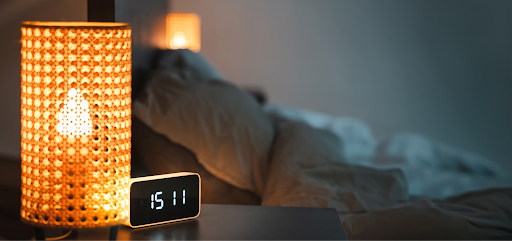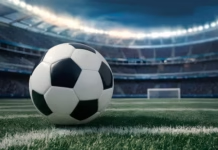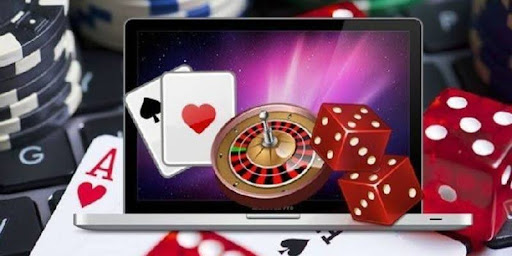Transforms Athlete Recovery
Getting better isn’t just a matter of working out at the gym—it requires sleep as well. Recovery is paramount for athletes, and advanced sleep-tracking technologies are augmenting this further. Sports science has developed new methods to facilitate rest and recovery, ranging from wrist trackers to AI insights. How do these advances improve performance, prevent injuries, and prolong longevity? Let’s examine this in detail!
The Rise of Sleep Tech in Sports
Athletes have traditionally focused on diet and exercise. But sleep? Not quite. This drastically changed when studies showed that a mere 10% reduction in sleep could lead to nearly a 20% decrease in reaction time and sprint speed. These may be small numbers, but fans who place bets using سایت شرط بندی فوتبال know that sometimes every millisecond can decide the entire outcome, especially if these are live bets. That is why athletes began to pay attention to such seemingly trivial details.
Sleep is monitored very rigorously in elite teams from the NBA, NFL, and the Premier League. The San Francisco Warriors’ forward incorporates the use of sleep trackers to monitor his recovery stats, while another forward from Manchester United uses cutting-edge smart mattresses in training camps. Tracking sleep has become more of a business strategy rather than a luxury.
Why Athletes Need Sleep Monitoring
Sleeping isn’t merely shutting your eyes and resting. Sleep is an essential aspect of an athlete’s life. Athletes rely on precise sleep tracking for optimal performance. Sleep monitoring has become increasingly popular due to its essential advantages, which include:
- Injury Prevention: Athletes who do not sleep adequately are 1.7 times more susceptible to injuries due to tired muscles and slow reaction times.
- Faster Recovery: Sleep enhances growth hormones that repair muscles after rigorous workouts and ensures they are working optimally.
- Optimized Training Load: Changing practice schedules based on observed sleep patterns prevents overworking or exhausting the athlete.
- Better Mental Focus: Research shows that an extra hour of sleep enhances an athlete’s speed and decision-making by up to 20%, which is highly beneficial in football and tennis.
Now, teams don’t guess about sleep—they analyze and optimize it. As a result, we hope that this will make all the matches even more dynamic, and a subscription to Instagram MelBet will allow you not to miss them. There, you will find reminders about upcoming popular matches, news from the world of sports, and even thematic memes. The subscription is completely free, so why not do it and always stay up to date with the changes?
Wearable Devices for Better Recovery
Tracking sleep has never been more effortless with the advancement of technology. Wearable devices give real-time updates on recovery and preparation, ensuring that athletes can train efficiently.
The Oura Ring, which is worn by numerous NBA stars like LeBron James, detects HRV (heart rate variability), which indicates recovery. On the other hand, WHOOP bands used in the NFL monitor sleep cycles and interruptions, providing fatigue scores for better adjustments in training load.
Moreover, smart jerseys are on the rise. Barcelona trialed biometric shirts with the capability of sensing breathing patterns to help trainers design recovery plans. The effects are—fewer injuries, improved endurance, and quicker recovery!
How Sleep Data Enhances Performance
Collecting sleep data is not sufficient. It’s in the execution. Let’s take a look at each stage of sleep and consider its effect on an athlete’s performance:
| Sleep Stage | Function | Impact on Athletes |
| Light Sleep | Memory processing, basic rest | Improves tactical awareness |
| Deep Sleep | Muscle recovery, hormone release | Boosts strength & endurance |
| REM Sleep | Mental clarity, reaction speed | Enhances focus & strategy |
| Interrupted Sleep | Incomplete recovery | Increases injury risk |
| Oversleeping | Can cause grogginess | Reduces agility |
Athletes who use sleep-tracking technology report 15–20% better performance metrics by merely optimizing their sleep stages.
Smart Mattresses and Recovery Tracking
The idea that your bed can enhance your performance might not be as crazy as it seems. Smart mattresses are a revolutionary advance in athletic recovery, adjusting in real-time to the body’s pressure and temperature.
The Lakers presented smart mattresses that automatically adjust firmness to support their muscles. The mattresses track the player’s heart rate, movement, and temperature to ensure optimal recovery every night. The players reported a 12% increase in endurance throughout the season.
Rafael Nadal is among the tennis stars using recovery mattresses that monitor sleep efficiency. They help athletes recalibrate their training schedules based on the rest they got. Recovery science is evolving by redefining recovery systems!
AI-Powered Sleep Insights for Athletes
AI has changed sleep monitoring profoundly. Most advanced interfaces concerned with AI sleep management work with algorithms that analyze hundreds of thousands of data points to give users personalized recommendations. Here are some of the ways AI is changing the game:
- Predicting Injury Risk: AI can track minute changes in the quality of sleep and help mark specialized signs of overtraining so injuries can be avoided.
- Customized Recovery Plans: Sleep AI suggests changes in diet, hydration, and workout routines based on the sleep telemetry data it collects in real-time.
- Jet Lag Optimization: Now, teams like Real Madrid can automatically adjust sleep cycles and preemptively prepare for long-distance travel using AI applications, mitigating the effects of jet lag.
- Mental Recovery Tracking: Tools that AI provides actively monitor athletes’ REM sleep cycles, ensuring they get the necessary mental recovery to effectively perform at their best.
Athletes have started using sleep not just as a recovery tool but as a well-planned strategy. With AI, everything changes.
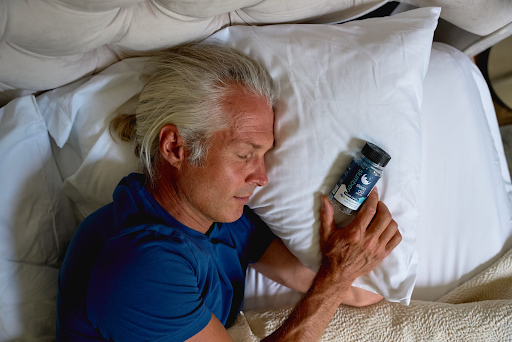
Optimizing Training with Sleep Analytics
It is now evident that sleep, harnessed efficiently, is a powerful asset. Coaches have now started to utilize sleep analytics to optimize every detail of preparation, including recovery and performance.
In Olympic swimming competitions, the introduction of sleep trackers assisted coaches with optimizing warm-up durations, which resulted in a 0.8% improvement in race speed. This can determine whether a swimmer wins gold or silver! In addition, UFC fighters reporting the use of biometric sleep monitoring have experienced 30% fewer stress hormones, which greatly improves reaction time during fights.
The data is clear! It is no wonder sports teams are investing millions into sleep technology because it is a proven fact—rested athletes outperform, outpace, and outlast their counterparts.
The Role of Deep Sleep in Muscle Repair
It isn’t in the gym where muscle recovery takes place—it is at night. Sleep technology proves that magic happens during sleep, particularly deep sleep. Let’s elaborate a little:
- Growth Hormone Release: An athlete’s muscle repair happens during deep sleep and accounts for 60% of total recovery.
- Protein Synthesis Boost: A deficit in deep sleep can reduce muscle recovery by 50%, which is detrimental after intense training.
- Inflammation Reduction: Increased cortisol levels associated with poor sleep delay muscle repair and increase soreness.
- Strength Gains: Athletes who get more than eight hours of deep sleep have been shown to build over 20% more muscle than their counterparts.
In summary, these deep sleep benefits greatly enhance an athlete’s performance, enabling them to become faster, more resilient, and stronger.
Future Trends in Sleep Monitoring Tech: The Next Level of Recovery!
Envision a world with smart pillows that track deep sleep breaths. AI-powered earbuds that optimize brainwaves during deep sleep. What used to be for elite athletes will now turn into everyday tech, and with these advancements, recovery will be faster than ever, enabling us to push human performance to a new height.
The future of sports is not limited to activities that take place on the field. In fact, it extends to the bed. And now, with ultra-smart features, sleep marks the ultimate recovery tool.

